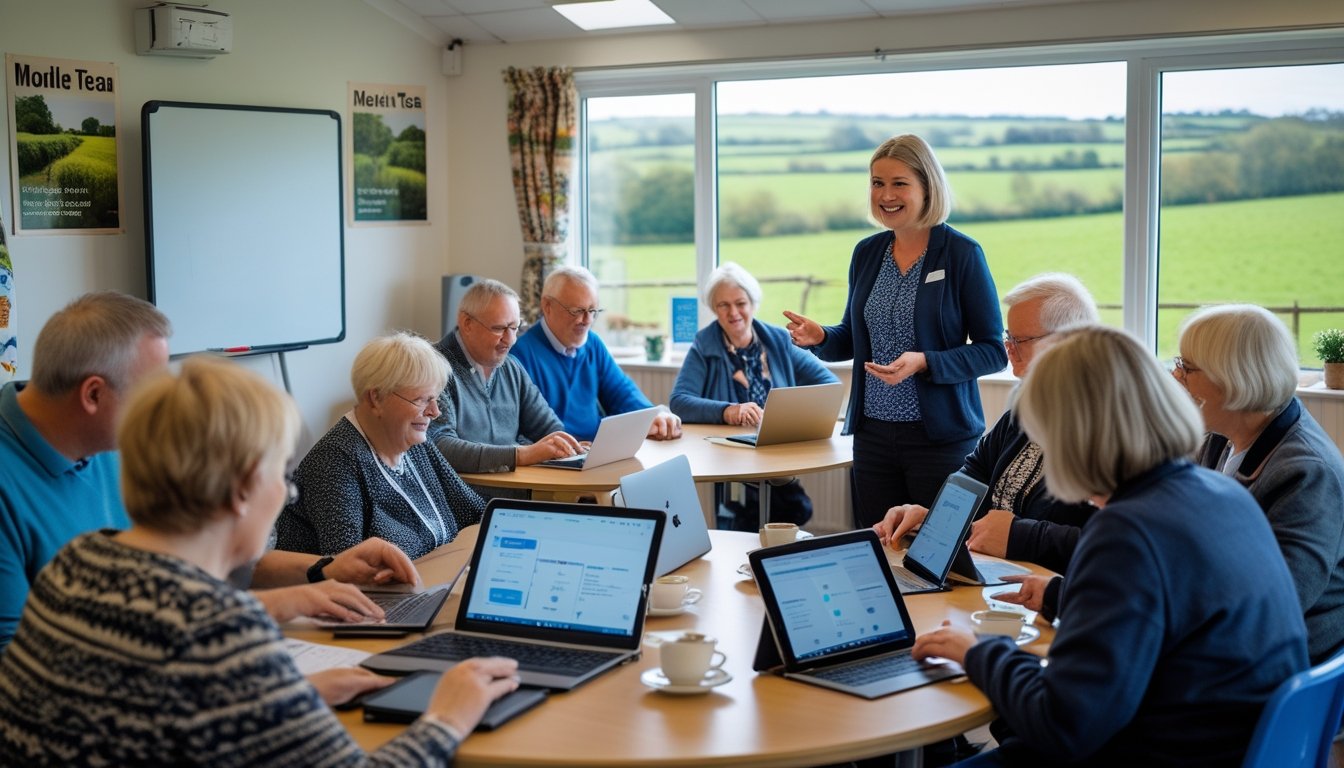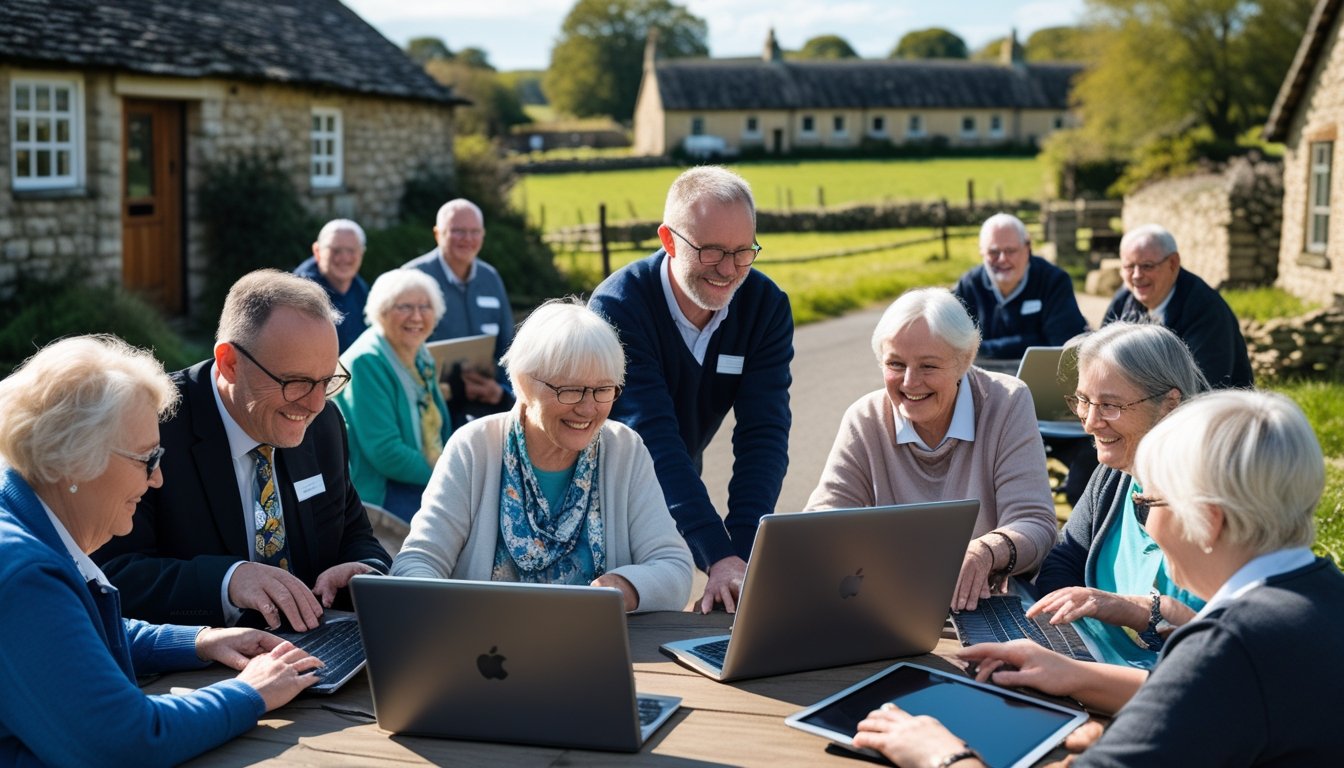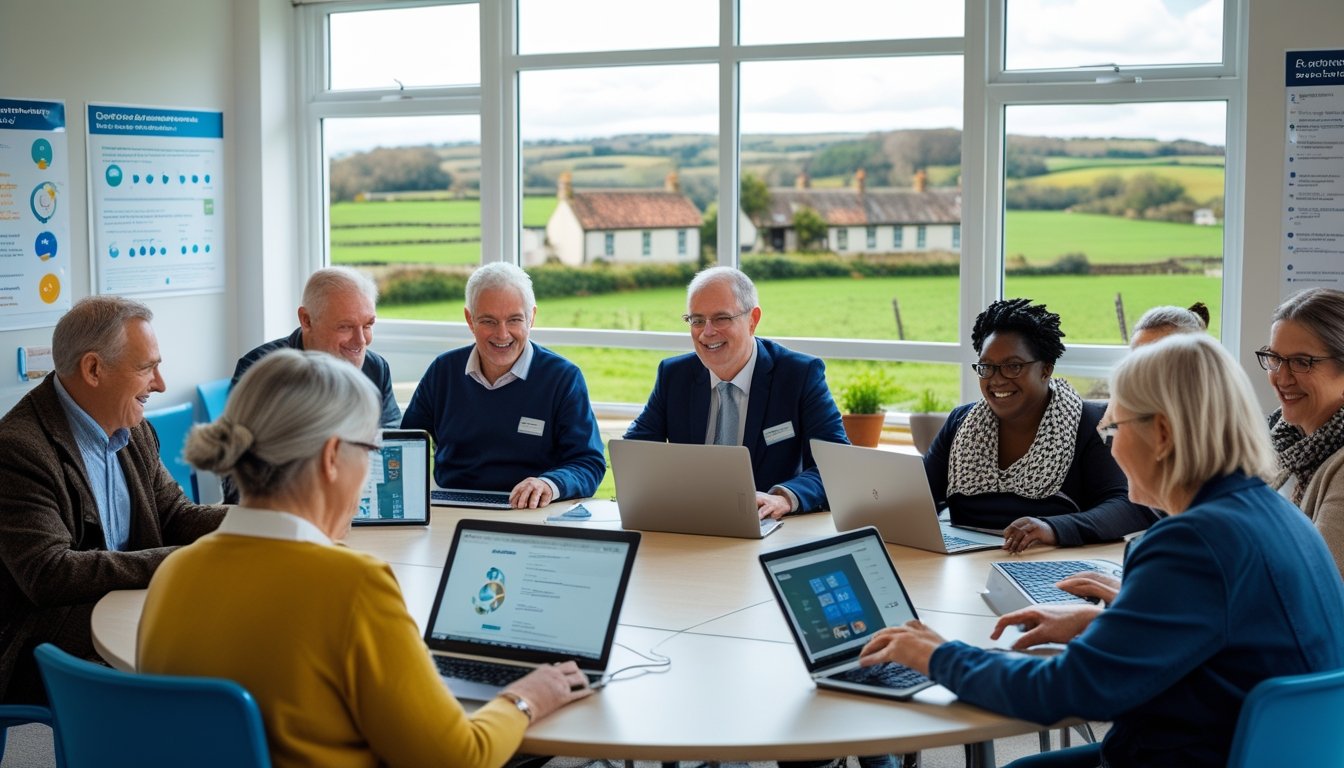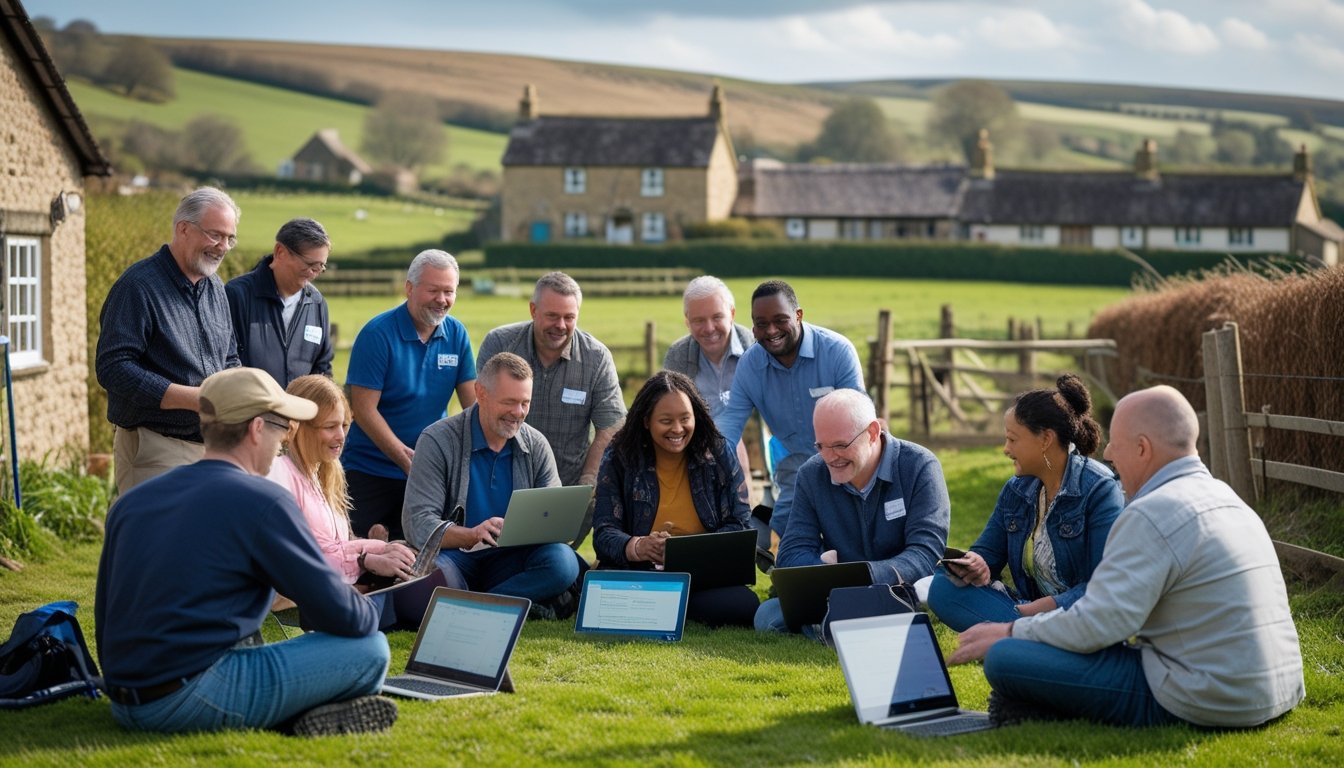Late updated: 05 Jul 2025 10:07
Written by: Oliver Bennett
Promoting Digital Skills In Rural UK Communities: Bridging the Gap
The digital divide in rural UK communities remains a significant challenge, impacting everything from economic potential to social engagement. Bridging this gap through digital skills and connectivity can transform local economies and empower individuals to thrive in an increasingly digital world. Nearly 20% of the UK's population is based in rural areas, yet many still lack reliable internet access, putting them at a disadvantage compared to their urban counterparts.

To foster a digitally inclusive environment, both government initiatives and community-driven efforts play vital roles. Initiatives like broadband infrastructure development, along with workshops and training sessions, are essential for equipping rural residents with the necessary digital skills. These efforts not only enhance access to digital resources but also build confidence in using technology effectively.
As we delve into the strategies for promoting digital skills in these communities, it's clear that collaboration between local authorities, educational institutions, and private companies is crucial. This symbiotic partnership can lead to sustainable solutions, enabling rural populations not just to participate, but to excel in the digital age. By strengthening digital literacy, we can offer rural communities the tools they need to connect with wider opportunities.
Key Takeaways
- Digital skills are crucial for rural community empowerment.
- Collaboration is essential for effective digital inclusion.
- Local initiatives are key to bridging the digital divide.
Addressing the Digital Divide in Rural UK Communities

In rural UK communities, the digital divide manifests as a significant barrier to socio-economic development. The lack of digital infrastructure and limited internet access impact education, healthcare, and economic opportunities.
Understanding the Digital Divide and Its Impact
The digital divide refers to the gap between those who have access to the internet and digital technologies and those who do not. In rural UK communities, this divide is often more pronounced. The lack of reliable digital infrastructure prevents residents from accessing essential services.
Without digital inclusion, rural residents may find it challenging to keep up with educational resources or participate in the digital economy. This disparity leads to unequal opportunities, affecting employment prospects and overall quality of life.
Challenges in Digital Infrastructure and Connectivity
The key challenge in bridging the digital divide for rural UK communities lies in digital infrastructure. Many areas struggle with poor broadband connectivity and outdated technology. Lack of investment from both government and private sectors exacerbates this issue, leaving rural areas behind urban counterparts.
Community-led broadband initiatives could serve as a viable solution. However, they require substantial resources and commitment from both local leadership and external stakeholders.
Satellite and mobile broadband present alternative solutions, but their effectiveness can vary. Their infrastructure costs can also be prohibitive for small communities.
Role of Digital Access and Inclusion Initiatives
Digital access and inclusion initiatives play a crucial role in mitigating the challenges identified. Organisations and local governments are creating programmes that focus on improving digital literacy alongside enhancing infrastructure.
Community workshops and training sessions can be instrumental in empowering residents with digital skills. Increasing internet access through subsidies or grants for rural areas is another effective approach.
Collaborative efforts between the government, non-profits, and tech companies create holistic strategies that address both connectivity issues and educational gaps. These initiatives not only provide immediate relief but also ensure sustainable progress in closing the digital divide.
Key Strategies for Promoting Digital Skills and Inclusion

Promoting digital skills in rural UK communities hinges on effective training, encouraging local business engagement through e-commerce, and the innovative use of AI. Developing comprehensive strategies in these areas ensures that these communities can thrive in the digital era, enhancing social and economic opportunities.
Effective Digital Skills Training Programmes
Digital skills training is vital for empowering rural communities. We should implement tailored educational programmes that reflect the unique needs of these areas. Engaging local stakeholders, such as libraries or community centres, can provide resources and spaces for learning.
Organisations like the Good Things Foundation often lead digital inclusion initiatives, offering structured courses in basic digital skills. From understanding internet navigation to mastering digital communication, these programmes focus on building confidence and competence.
Assessments and feedback loops should be integrated to continually adapt the content to learners' progress and emerging needs. With a focus on inclusivity, we can ensure comprehensive access to these skills across all demographics.
Facilitating E-Commerce and Local Business Growth
Promoting e-commerce among rural businesses can significantly boost local economies. By integrating digital selling platforms, we enable local enterprises to reach broader markets. Training in e-commerce tools is essential, covering everything from online marketing to transaction management.
Workshops led by industry professionals can demonstrate the potential of digital platforms in driving sales and customer engagement. Networking events may also connect local businesses with digital experts, forming partnerships that bolster growth.
For further support, local councils can create digital toolkits that guide businesses in setting up and optimising online stores. Ensuring robust digital infrastructure, such as reliable broadband, lays the foundation for this transition.
Leveraging AI and Innovation in Rural Digital Learning
AI technologies offer tremendous potential to transform digital learning in rural settings. Personalised learning experiences, powered by AI, can cater to individual needs and pace, making education more accessible and effective.
Investment in AI tools, like virtual tutors and intelligent course recommendations, can aid learners in acquiring digital skills efficiently. Such innovations can also reduce barriers for those with learning disabilities, fostering greater inclusion.
By collaborating with tech companies and educational institutions, we ensure rural learners have cutting-edge resources. Embracing AI and innovation can attract interest in digital learning, making these communities as competitive as urban areas.
Frequently Asked Questions

We explore effective strategies for improving digital literacy, innovative solutions to connectivity issues, and the role public-private partnerships play in enhancing digital skills in rural UK communities. Additionally, we examine educational programmes with proven success and support from local governments and funding opportunities for digital skill development.
What strategies are effective for enhancing digital literacy in rural UK areas?
Community-led initiatives are instrumental. They often involve local libraries and schools offering hands-on training sessions. Engaging local champions who understand community needs ensures that programmes are relevant and impactful.
How can connectivity challenges be overcome to improve digital skills in rural communities?
Investment in broadband infrastructure is crucial. Collaborating with telecommunications companies to expand coverage can significantly enhance access. Additionally, alternative solutions like satellite internet can be explored to reach more remote areas.
What role do public-private partnerships play in advancing digital education in remote parts of the UK?
Public-private partnerships enable resource sharing and expertise exchange. Companies can provide technological support and equipment, while the government can offer funding and policy backing. These partnerships foster innovative educational opportunities that can be tailored to unique rural needs.
Which educational programmes have a proven track record for boosting digital competence in rural regions?
Programmes that focus on both basic and advanced digital skills are essential. Initiatives like the Digital Skills Partnership and local college courses have successfully catered to the diverse needs of rural populations, ensuring that both individuals and businesses can benefit.
How are local governments supporting the digital inclusion of rural populations?
Local governments are actively promoting digital inclusion through funding initiatives and policy changes. They support training programmes and collaborate with community centres to increase accessibility, ensuring that rural residents have the opportunity to enhance their digital skills.
What funding opportunities are available to facilitate digital skill development in the UK countryside?
There are several funding streams available, such as government grants specifically aimed at enhancing rural digital infrastructures. In addition, private foundations sometimes offer funding for community projects that focus on digital literacy, and local councils may also provide small grants for targeted initiatives.
